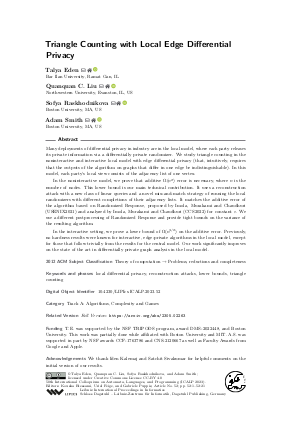LIPIcs.ICALP.2023.52.pdf
- Filesize: 1.04 MB
- 21 pages

 Creative Commons Attribution 4.0 International license
Creative Commons Attribution 4.0 International license





































Feedback for Dagstuhl Publishing